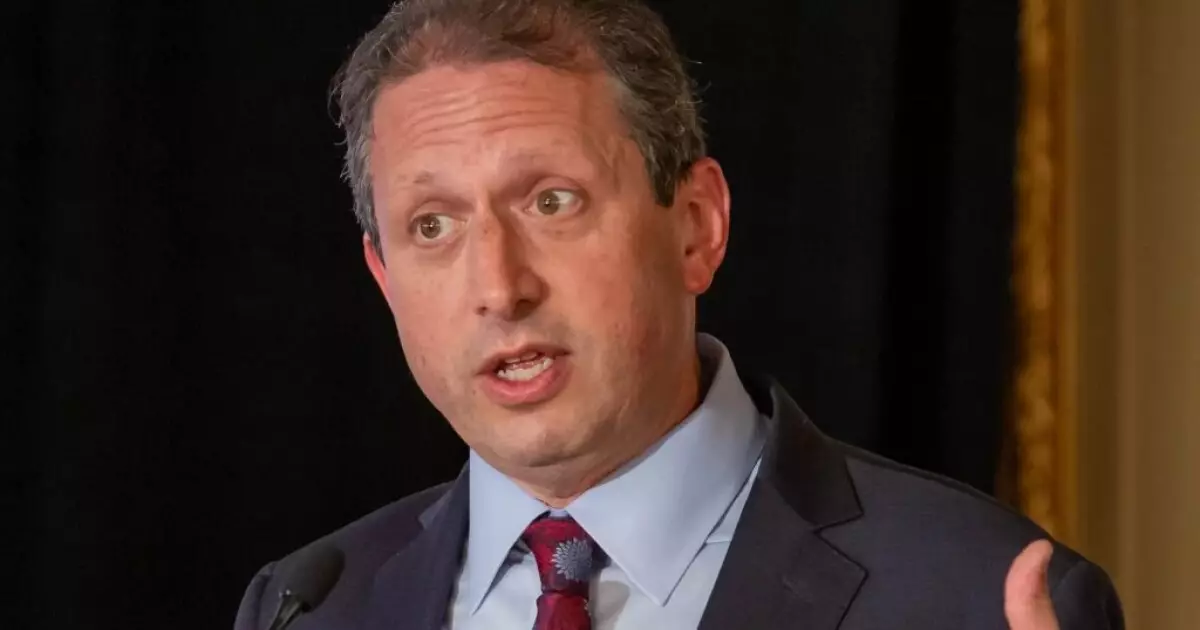In a decisive move reflecting the growing urgency of climate change, New York City Comptroller Brad Lander has thrown his support behind a policy that would prevent the city’s pension funds from investing in fossil fuel infrastructure. This proposed strategy is poised to make three significant retirement systems in New York City pioneers in the gradual withdrawal from fossil fuel investments, positioning environmental sustainability as a critical consideration in financial decision-making. The combined assets of these pension funds total an impressive $285 billion, and their actions could serve as a benchmark for other financial entities grappling with the implications of climate risk.
Lander’s assertion that “climate risk is financial risk” encapsulates the shift in investment philosophy that is gaining momentum among financial stewards. By framing climate-related issues in financial terms, he emphasizes the need to approach investments through a systemic risk lens—an approach that considers not just immediate profitability but also the long-term impacts of climate change on market stability and asset viability. This rhetoric aligns with a broader understanding among investors of the increasing vulnerability of fossil fuel investments in a world moving towards environmental accountability and sustainability.
The intended policy is comprehensive: it aims to eliminate investments in all midstream and downstream fossil fuel infrastructure within the pension funds’ private market strategies. This decision follows the funds’ earlier initiative in 2022 to divest from upstream fossil fuel investments, which involved exploration and extraction. However, the new policy represents a significant expansion of that strategy, extending to related infrastructure such as pipelines and liquefied natural gas (LNG) terminals. This progression showcases a more thorough reevaluation of fossil fuels’ role in the financial landscape, raising questions about the future of these investments as societal values shift.
Lander’s Bureau of Asset Management is tasked with presenting this new policy to the trustees of the three retirement systems in early 2025. One of the challenges will be determining the current value of existing midstream and downstream fossil fuel infrastructure holdings. As Lander candidly observed, the Bureau does not yet know this figure, underscoring the complexities involved in transitioning away from fossil fuels while managing existing portfolios. The process of evaluating and possibly divesting from these assets will require careful research and deliberation, illustrating the intricate balancing act that responsible investors must perform.
The historically ingrained financial practices that favored fossil fuels are now under scrutiny as the principles of climate justice gain traction. The pension funds have already initiated a drastic shift with an allocation of $11 billion toward “energy and climate solutions” as part of their Net Zero Implementation Plan. This reallocation signifies a commitment to redirecting financial resources towards sustainable technologies and initiatives, nearly tripling previous investments in fossil fuel-related ventures. Moving forward, the continued scrutiny and diligence in these investment choices will likely serve as both a financial and ethical benchmark for similar funds globally.
Lander’s support for sustainable investing starkly contrasts with the approaches observed in several Republican-led states, where policies have been enacted to compel financial institutions to invest in fossil fuel sectors. These states often leverage political pressure to depict fossil fuel investments as a linchpin of economic stability, while New York City’s pension funds are paving a new path focused on environmental sustainability. This divergence highlights the broader ideological battles surrounding climate change, investment ethics, and the future of energy consumption in America.
Brad Lander’s endorsement of an exclusionary fossil fuel policy for New York City’s pension funds exemplifies a broader trend toward responsible investing that prioritizes climate sustainability. As financial entities grapple with the realities of climate risk, the implications for investment strategies and regulatory frameworks will reshape the industry. The steps taken by these pension funds not only reflect a commitment to sustainability but also serve as a clarion call for investors worldwide to rethink their portfolios for the challenges and opportunities that lie ahead in an ever-evolving financial landscape. By embracing these changes now, New York City is signaling its readiness to lead in an era increasingly defined by environmental consciousness and responsible governance.

